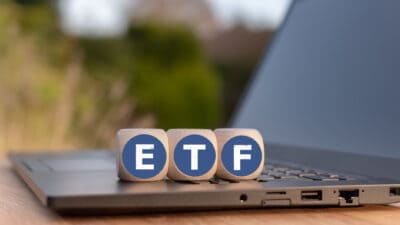When it comes to ASX-listed exchange-traded funds (ETFs), the Vanguard MSCI Index International Shares ETF (ASX: VGS) is a popular choice for international shares exposure. Along with the iShares S&P 500 ETF (ASX: IVV), VGS is consistently a top receiver of ETF inflows from ASX investors.
But how does this fund's performance measure up to other ASX index funds?
The Vanguard International Shares ETF is an extremely broad and diverse fund. It holds almost 1,500 individual shares from more than 20 advanced economies around the world. These include countries like Canada, the United Kingdom, Japan, France, Germany, and Hong Kong.
But in practice, most of the VGS shares by weighting stem from the United States. The US accounts for 71% of VGS's total portfolio weighting, on the latest numbers.
As such, one might recognise some of its top holdings. They include names like Apple Inc (NASDAQ: AAPL), Microsoft Corporation (NASDAQ: MSFT), Amazon.com Inc (NASDAQ: AMZN), and Alphabet Inc (NASDAQ: GOOG) (NASDAQ: GOOGL).
How has the VGS shares ETF performed?
So let's check out the Vanguard International Shares ETF's performance metrics.
As of 31 July, VGS had returned a loss of 4.16% over the preceding 12 months. Over the past three years, the ETF averaged an annual return of 9.51%, which stretched to 12.15% over the past five years.
So how does that compare with other ASX-listed index funds?
Well, VGS looks good against ASX shares, for starters. Let's take the performance of the popular Vanguard Australian Shares Index ETF (ASX: VAS).
VAS has given its investors a negative return of 2.24% over the year to 31 July 2022. Over the past three years, it has averaged 4.48% per annum, and 8.12% per annum over the past five. So certainly behind VGS.
What about other international ETFs?
Well, VGS's metrics don't look quite as rosy when compared to the US-only iShares S&P 500 ETF.
IVV has delivered a positive return of 0.24% over the 12 months to 31 July. It has also averaged 12.58% per annum over the past three years, and 15.61% over the past five.
But neither VGS nor IVV can hold a candle to another US-based index fund, the BetaShares NASDAQ 100 ETF (ASX: NDQ). NDQ is more concentrated than IVV, holding 100 of the largest companies on the tech-heavy NASDAQ exchange.
NDQ has returned a loss of 8.68% over the year to 31 July. But it has still averaged 17.95% over the past three years, and an impressive 20.69% over the past five.
So all in all, VGS has been a solid ASX performer in recent years, beating out the ASX-only VAS ETF. But it has not delivered the kinds of returns that either the iShares S&P 500 ETF or the BetaShares NASDAQ 100 ETF have managed to give their investors. Food for thought.








